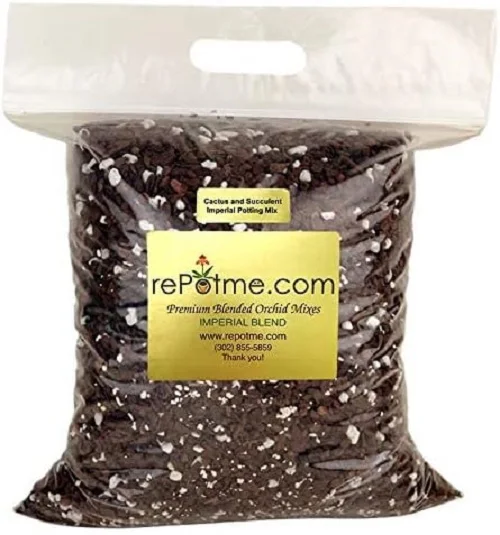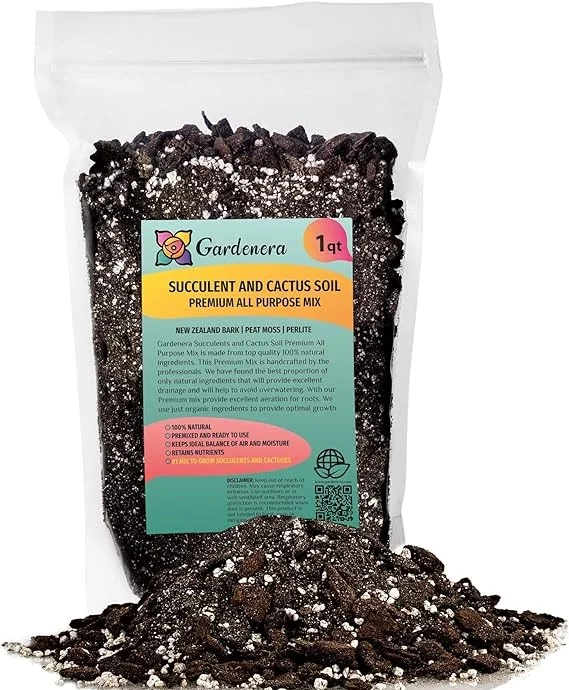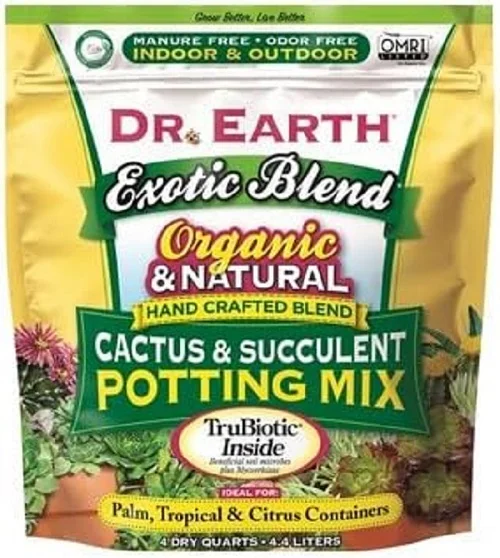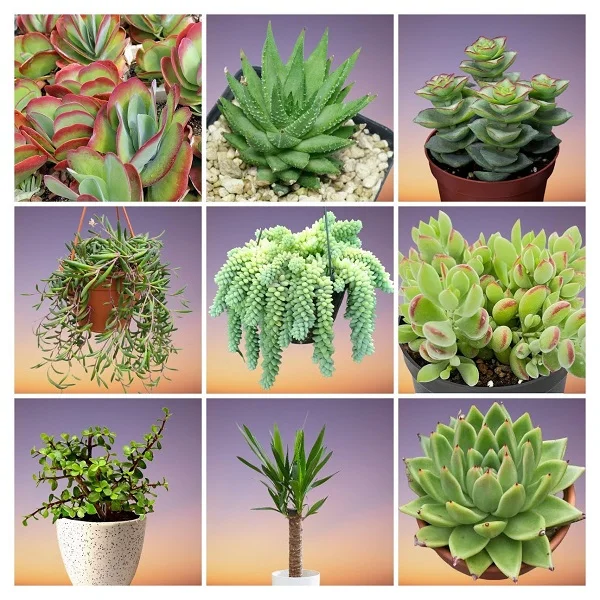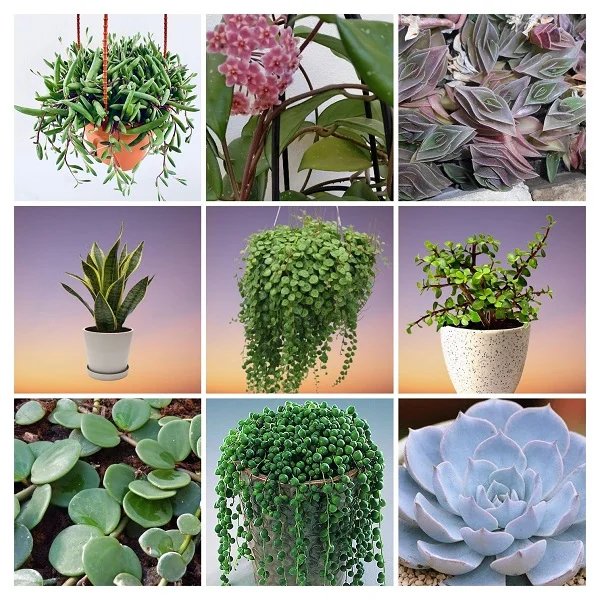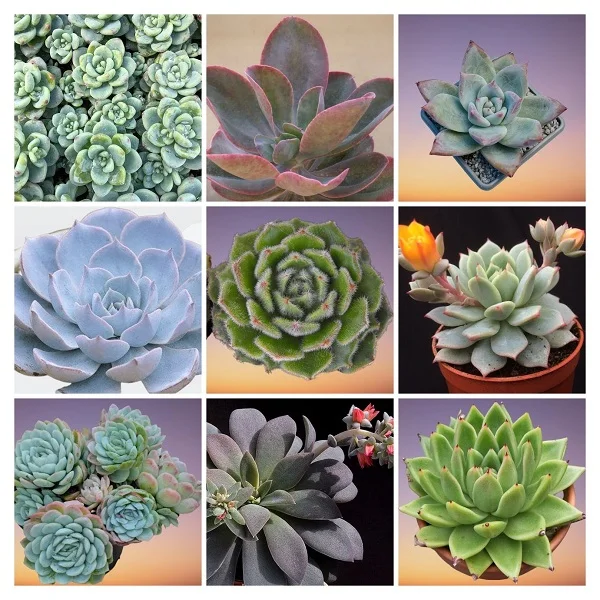How to Grow, Care and Propagate Gasteria rawlinsonii
Some links in this post may be affiliate links
Gasteria rawlinsonii requires bright light with some direct sunlight, average warmth, moderate humidity and moderately moist, rich, well-drained soil coupled with monthly feeding in the growing season.
Gasteria rawlinsonii is one of the unusual Gasteria varieties in that it grows long leafy stems which often hang downwards and the leaves are dark-green and edged with tiny black teeth, unlike in other Gasteria plants.
The inflorescence in Gasteria rawlinsonii has pink flowers which appear throughout the year and and held high above the foliage.
Gasteria rawlinsonii was named after Rawlins Jameson Henry Spencer Churchill, a botanical collector, by John Gilbert Baker in 1874.
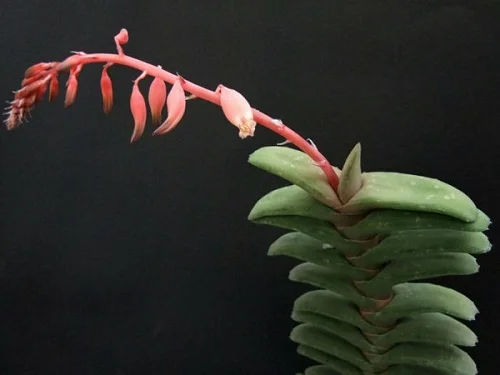
Botanical name: Gasteria rawlinsonii
Family: Asphodelaceae
Sufamily: Asphodeloideae
Origin
Gasteria rawlinsonii is native to Eastern Cape, South Africa where it is found growing hanging on cliff faces in shady ravines in well-drained sandstone soils.
Is Gasteria rawlinsonii toxic?
Gasteria rawlinsonii are non-toxic to both humans and pets. They are safe to grow in the home.
Where to Buy
If you would like to add these plants to your collection, check them out on Etsy (Link to Etsy).
Gasteria rawlinsonii Care Indoors
Gasteria rawlinsonii grows best in bright light with 6-8 hours of direct sunlight, average warmth of 18-290C, moderate humidity of 50-55% and moderately moist, fertile, well-drained, succulents potting soil coupled with monthly feeding during the growing season.
Gasteria rawlinsonii requires pruning to keep it neat and reduce pests and diseases. Repotting is only needed when it becomes pot-bound. Keep reading for more on these growing conditions and how to provide them.
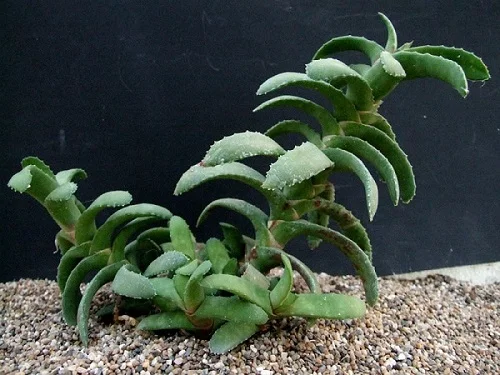
Light Requirements
Gasteria rawlinsonii grows best under bright light with 6-8 hours of direct sunshine. Avoid exposing it to too hot sunlight before acclimating it, as it can get sun burned.
It can be grown under grow lights if the natural light is not sufficient. Check out these full spectrum grow lights on Amazon.
Ensure to rotate the pot regularly so that the plant can receive light on all sides for even growth.
Watering
Water Gasteria rawlinsonii thoroughly during the growing season while allowing the top 2-3 inches of soil to dry out between waterings to maintain the soil moderately moist.
Significantly reduce watering during the cold season as growth is minimal at this time to keep the soil slightly moist but do not allow the soil to dry out completely.
Make sure that the pot has a drainage hole to prevent the soil from getting soggy as it can lead to rotting and loss of the plant.
Avoiding wetting the center of the rosette as it can lead to rotting. Watering from the bottom is a better option. Use water that is at room temperature water to avoid shocking this tropical plant.
Temperature and Humidity
Average warmth of 18-290C are ideal for Gasteria rawlinsonii. The sudden change in temperature between day and night is perfect for the growth of this succulent.
Gasteria rawlinsonii has no need for extra humidity. Average room humidity of 50-55% is ideal for this plant.
Fertilizer
Feed Gasteria rawlinsonii with a balanced, water-soluble fertilizer monthly during the growing period as they are slow growing and therefore do not need frequent feeding. Do not feed in the cold season as growth is minimal at this time.
Potting Medium
The best soil for Gasteria rawlinsonii should be rich in organic matter, loose and free-draining to avoid getting soggy soil. The soil should be loose enough to allow water to drain out fast enough. Cactus and succulents potting mix is ideal for these plants.
Repotting
Repot Gasteria rawlinsonii at the beginning of the growing season only when the plant becomes pot-bound. Use a shallow rather than a deep pot as they have shallow roots.
The pot should be only 1 size larger than the current one. Ensure that the pot has a drainage hole to prevent the soil from getting soggy as it can lead to root-rot disease. Take a look at these succulents pots available on Amazon.
Pruning
Pruning Gasteria rawlinsonii involves removal of dead or diseased leaves to maintain the plant neat and discourage pests and diseases. Cut the leaf at the base with a sharp knife or a pair of pruning scissors to detach it from the stem. Avoid excessive injury to minimise fungal and bacterial infections.
Propagation
Gasteria rawlinsonii can be propagated from offsets (pups) which form at the base of the plant.
How to Propagate Gasteria rawlinsonii from offsets (pups)
Select an offset which has several leaves and carefully seperate the offset from the mother Gasteria rawlinsonii by cutting with a sharp knife or a pair of scissors.
Allow the offsets to dry (callus) for 1-3 days before potting to prevent rotting.
Plant the offset in free-draining soil and ensure the pot has a drainage hole to prevent the soil from getting soggy.
Water sparingly, only when the soil is dry to avoid getting soggy soil as it can lead to root-rot.
Allow the new Gasteria rawlinsonii to be well established after which you can begin routine care.
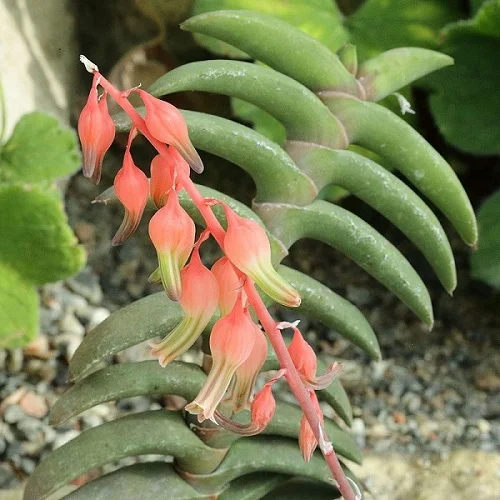
Gasteria rawlinsonii Problems
Gasteria rawlinsonii problems include wilting and drooping leaves, leaf spots, rotting, discoloration, pests and diseases among others. Keep reading for more on these problems, their remedies and solutions.
Pests
Common pests in Gasteria rawlinsonii are scale insects and mealy bugs. Isolate the affected plant to prevent spread to other plants and treat it appropriately for the pests.
Rotting base, yellowing and shriveled leaves
Rot at the base followed by yellowing and shriveled leaves in Gasteria rawlinsonii is an indication of basal stem rot disease due to overwet conditions. Remove and discard the infected parts to prevent spread to the rest of the plant.
Do not overwater in the cold season and reduce watering significantly to maintain the soil slightly moist. Ocassionally use a fungicidal solution to water the Gasteria rawlinsonii to prevent the disease infestation.
Leaves wilted and droopy
Wilted and droopy leaves in Gasteria rawlinsonii are caused by underwatering. Immediately water the plant thoroughly and it should recover. Do not allow the soil to dry our completely, maintain it moderately moist during the growing season and slightly moist in the cold season. Learn more on how to water houseplants the correct way.
Brown soft spots
Brown soft spots in your Gasteria rawlinsonii are an indication of leaf spot disease which is promoted by poor air circulation. Ascertain that there is proper air circulation for the plant.
Wilted and discolored leaves
Wilted and discolored leaves in Gasteria rawlinsonii are caused by overwatering during the cold season. Water the plant sparingly during the cold season and always allow the soil to almost dry out between waterings.
You liked it? Share on social media.
Related Content
Amazon Associates Disclosure
Homeplantsguide.com is a participant in the Amazon Services LLC Associates Program, an affiliate advertising program designed to provide a means for sites to earn advertising fees by advertising and linking to amazon.com.
